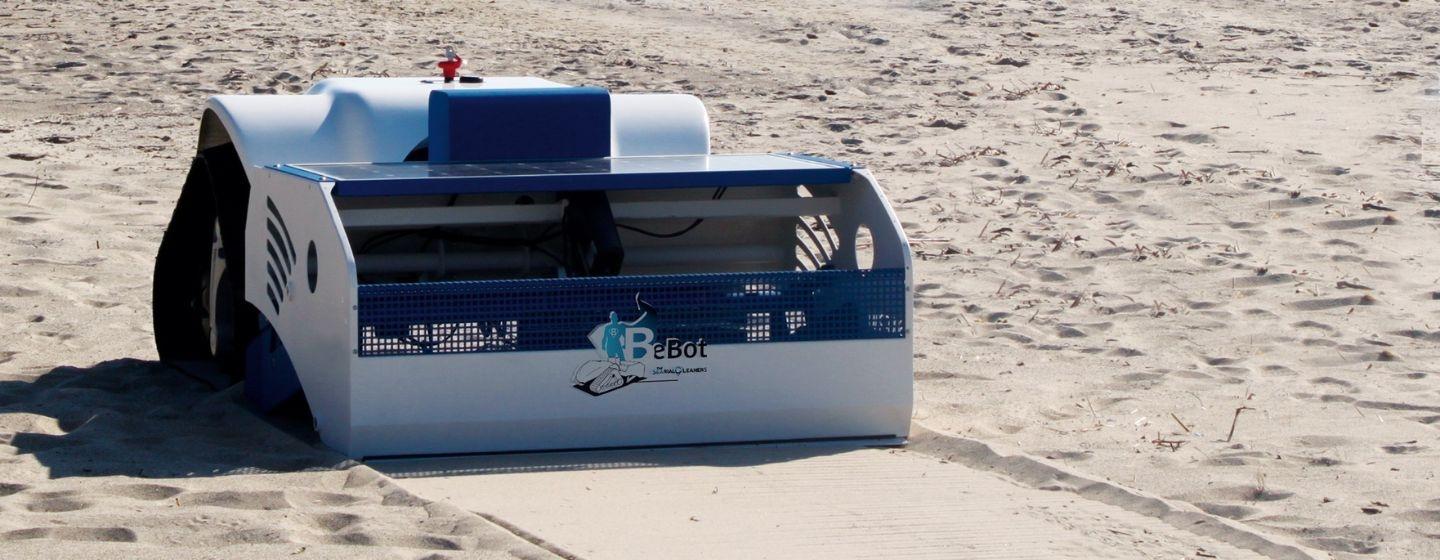Sand-Cleaning Robot Comes to NC


It’s beach time!
The surf, the salt air, the sun, the warm sand …
It’s perfect.
Until your toes hit a plastic straw or a cigarette butt or a bottle cap.
Don’t worry, BeBot can help with that.
Weighing in at roughly 1,350 pounds, about the size of a lawn mower and with a top speed of about 3 mph, BeBot is the first and only solar- and battery-powered, automated beach sweeper in North Carolina. It’s also one of less than a dozen being operated around the country.
“We’re not going to replace the traditional litter sweeps, but BeBot is perfect for high-traffic areas,” Dick Brightman, president and executive director of the Wilmington-based nonprofit Keep New Hanover Beautiful, told Sci NC. “It’s also a good vehicle to raise awareness about the smaller pieces of trash and plastics that get overlooked on beaches.”
BeBot carries a rake that scratches about 4 inches below the sand. That’s about where smaller pieces of trash usually end up, covered by sand, washed up by the waves or kicked around by beachgoers.
The rake blades push sand onto a grate that sifts the sand back onto the shore. The grate also catches pieces of trash and litter, which go into a back bin that’s later emptied.
Brightman says BeBot works at a sand depth that’s perfect for trash removal, but it doesn’t impact the shoreline. It’s also easy to maneuver.
“BeBot is remotely controlled by an operator on site, which allows us to avoid sensitive areas such as turtle nests,” adds Brightman. “This robot isn’t designed to clean entire beachfronts because it can only cover about 5,000 square feet (about the area of a basketball court) in 20 minutes. But it’s perfect for picking up small, tough-to-see cigarette butts and pieces of plastic in small, high-traffic areas like around piers.”
BeBot is built by Italy-based Niteko Robotics and distributed by the French company The Searial Cleaners, which is developing several technologies for coastal cleanup.
The robotic beach cleaner is being used by beautification groups to clean the sands on beaches in several other states, including Florida and Ohio. The nonprofit Keep America Beautiful, which has 700 community affiliates including Keep New Hanover Beautiful, has helped coordinate the deployments in North Carolina.
BeBot is currently being used at Wrightsville Beach. Brightman hopes several more towns will apply for a permit from the North Carolina Division of Coastal Management to use BeBot because he’d like to deploy it at multiple beaches along the coast. Call it the BeBot beach tour.
“We want to get out and get some exposure, not just to pick up trash but also to demonstrate how much trash lies just beneath the sand,” adds Brightman. “I’m not sure people realize how much they leave behind after a day at the beach.”
The International Coastal Cleanup estimates almost 8 million tons of plastic trash enter the ocean every year, endangering sea life and contributing to the creation of microplastics and the buildup of massive collections of debris like the Great Pacific Garbage Patch.